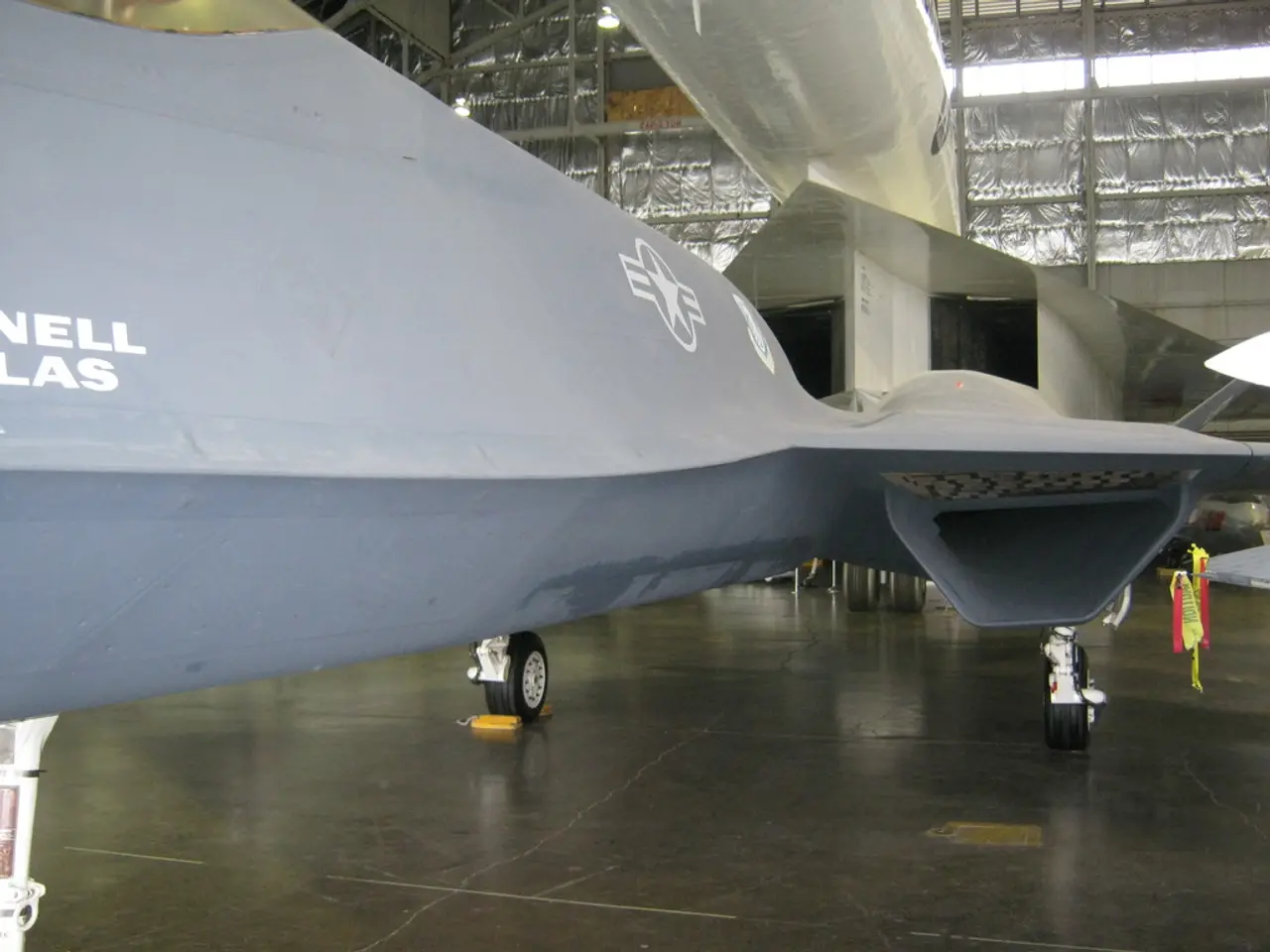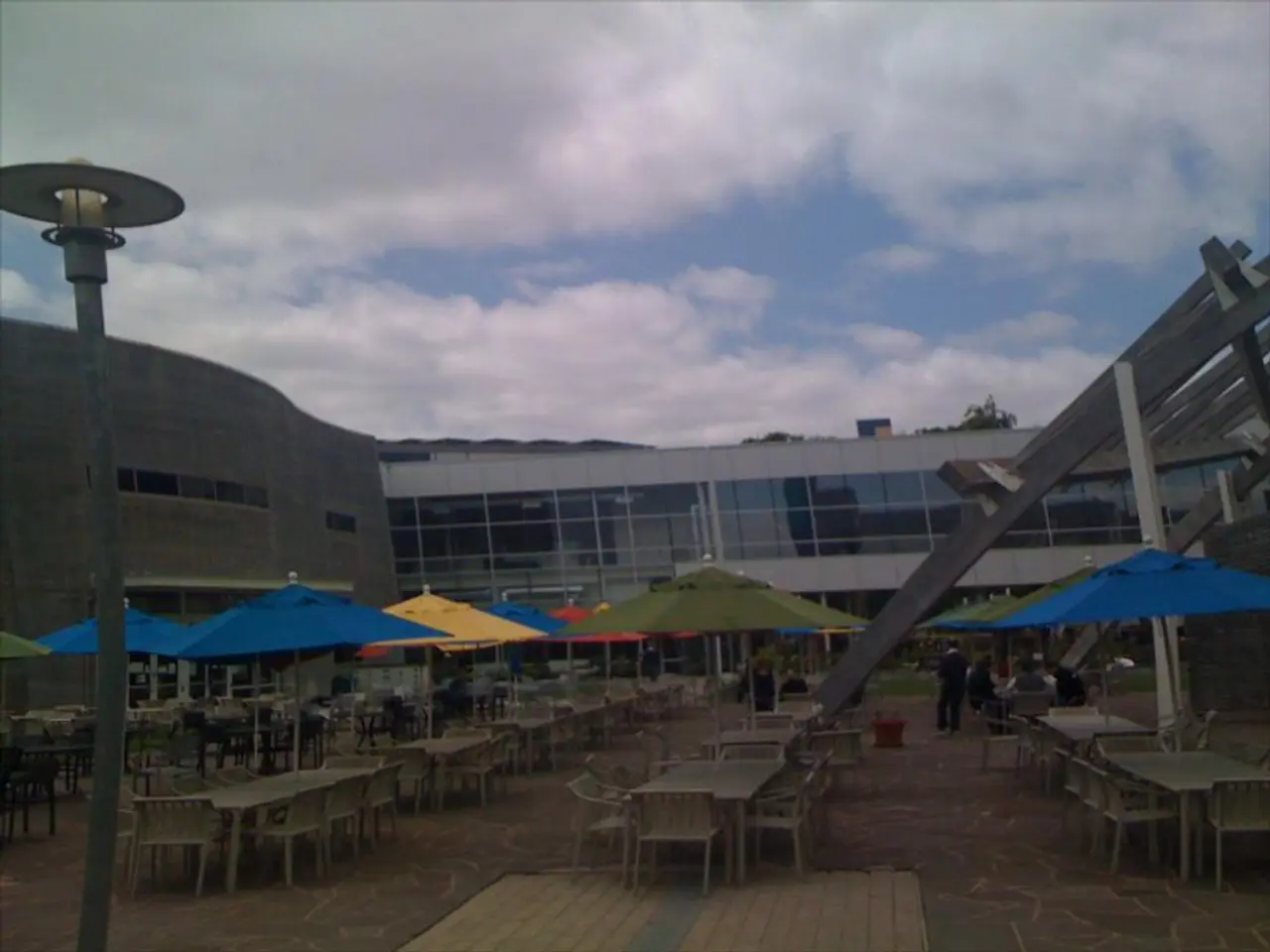Air Research Reveals No Link Between Plane Cabin Air and Nut Allergy Threats
In a groundbreaking study, researchers from Imperial College London and the Aviation Medical Consultancy have found no evidence that nut particles in aircraft ventilation systems pose a risk to people with nut allergies. Contrary to popular belief, the study suggests that airborne exposure on flights is unlikely to be a significant risk for allergic reactions.
The study, funded by the UK Civil Aviation Authority and the UK Medical Research Council, also found that allergic reactions to foods occur between 10 and 100 times less frequently on planes than on the ground. This finding casts doubt on the necessity of blanket nut bans on flights from a scientific standpoint.
Airline announcements banning nuts are a common precaution aimed at protecting passengers with nut allergies. However, the evidence supporting these bans is limited, and their necessity is debated. The study's findings suggest that a greater risk comes from the residue of food left in people's seats from previous flyers' snacks and meals.
Professor Paul Turner, a specialist in anaphylaxis and allergy, stated that the allergens can be found on seat surfaces, table tops, and seat-back entertainment screens and can be transferred to people's mouths. People with allergies can protect themselves by cleaning their seat area with items like baby wipes or antibacterial wipes before boarding.
Simon Williams, chief executive of Anaphylaxis UK, emphasizes the importance of cleaning the seat area, including the tray table and seat-back entertainment system. The research team is in discussions with major airlines to explore better frameworks and share best practices for managing customers with dietary restrictions.
The study's conclusions, however, do not suggest that extra precautions passengers with food allergies might take when traveling contribute to fewer reactions due to airborne particles. The air circulates across the cabin, not through it, and filtering systems remove most dust, vapors, and food particles in aircraft ventilation systems.
Turner concluded that announcements requesting nut bans on board may install a false sense of security. The study did not find any evidence that nut particles could travel through the cabin ventilation system on aeroplanes and cause reactions.
The team is working with anaphylaxis charities to potentially bring about consistent changes in airline policy regarding food allergies. The aim is to reflect the evidence and make a difference in food-allergic passengers' experiences across airlines operating in the UK and internationally.
While nut bans on flights may not be strongly supported by the evidence regarding airborne allergen transmission, they remain a precautionary measure to protect allergic passengers from potential contact exposure and to reduce anxiety about allergic reactions. The study's findings underscore the importance of maintaining cleanliness and personal precautions for passengers with food allergies to ensure a safer and more comfortable travel experience.
- The study, which received funding from the UK Civil Aviation Authority and the UK Medical Research Council, suggests that the risk of allergic reactions to foods on aircraft ventilation systems is unlikely to be significant.
- The researchers found that allergic reactions to foods occur less frequently on planes than on the ground, casting doubt on the necessity of blanket nut bans on flights.
- Professor Paul Turner, a specialist in anaphylaxis and allergy, stresses that allergens can be found on seat surfaces, table tops, and seat-back entertainment screens, and advises passengers with allergies to clean their seat area before boarding.
- Simon Williams, chief executive of Anaphylaxis UK, encourages the use of better frameworks and best practices for managing customers with dietary restrictions, and the research team is in discussions with major airlines to implement these changes.
- The study's findings indicate that airline announcements requesting nut bans on board might instill a false sense of security, as there is no evidence that nut particles can travel through the cabin ventilation system on aeroplanes and cause reactions.
- The team is collaborating with anaphylaxis charities to potentially bring about consistent changes in airline policy regarding food allergies, with the ultimate goal of improving food-allergic passengers' experiences across airlines operating in the UK and internationally. The study's findings also highlight the importance of maintaining cleanliness and personal precautions for passengers with food allergies to ensure a safer and more comfortable travel experience.



